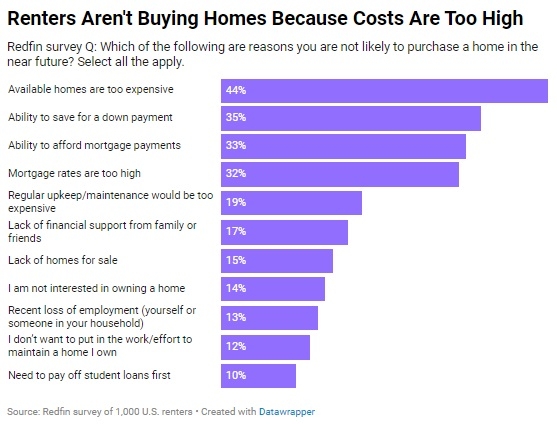Advertisement
Appraisal Quality Control Is No Longer Optional for AMCs

The recent lawsuits filed by the Federal Deposit Insurance Corporation (FDIC) against two appraisal management companies (AMCs) highlight the need for AMCs to be performing thorough quality control (QC) reviews of their appraisals. In early May, the FDIC filed lawsuits against both LSI Appraisal and CoreLogic Valuation Services alleging that these two companies performed sloppy appraisals, which led to losses at Washington Mutual of several hundred million dollars. The FDIC is still evaluating many more claims against AMCs for appraisals delivered during that same time period to other failed lending institutions. There is little doubt that at some point in the not too distant future, the FDIC will be filing additional lawsuits against several more AMCs who delivered faulty appraisals to failed lenders. It is also reasonable to anticipate that several AMCs may discover the professional liability insurance policy which some of their appraisers carry excludes claims made by the FDIC. In late 2010, in response to the “failed lender-bad loan” crisis a few errors and omissions (E&O) insurance providers began limiting appraiser’s coverage for “prior acts.”
Given the current climate, pending litigation and other issues, it should be obvious that if AMCs are to survive and thrive in the future, they will need to become proactive in terms of obtaining quality appraisals in order to reduce their risk, and hopefully their liability, for poor quality appraisals.
A proactive AMC appraisal QC program starts with a thorough vetting of an appraiser prior to adding him or her to their appraiser panel. Currently, many AMCs hold the mistaken belief that “vetting” an appraiser means visiting the Appraisal Subcommittee (ASC) Web site to ensure that the appraisers’ name with its current license status is listed. Unfortunately, even if an appraiser has committed repeated multiple Uniform Standards of Professional Appraisal Practice (USPAP) violations in their home state and even if those violations resulted in thousands of dollars of fines unless their license was revoked, more often than not, that appraiser will be listed no differently than an appraiser who has a perfect record on the ASC site. It is worth noting that many of the eAppraiseIT appraisers whose appraisals serve as part of the basis for the current FDIC lawsuit had prior disciplinary histories with the Florida appraisal board prior to undertaking their work for eAppraiseIT. AMCs must therefore take the time to thoroughly check each state’s appraisal board records even though it frequently means reading each states’ appraisal board newsletters month by month or quarter by quarter for the last 10 years in order to be able to pull the individual appraiser’s disciplinary history. After an AMC has completed the initial vetting for an appraiser panel candidate, the AMC needs to continue to monitor that appraiser’s state appraisal board disciplinary activity to ensure that appraiser’s competency.
QC at an AMC also means that the AMC will not pay its appraisers unreasonable compensation because doing so precludes its access to a large pool of good appraisers. While I concede the definition of a “reasonable fee” varies depending upon who is defining it, I think we can all agree that the $250 or $275 which some AMCs pay is “unreasonable.” Is it really all that surprising that LSI, one of the worst offenders in terms of appraiser compensation, is one of the first AMCs to be sued for poor quality appraisals by FDIC? When Francois Gregoire, a forensic appraiser, was asked about the appraisers employed by the AMCs whose appraisals were the basis of the FDIC lawsuit, he responded, “I don’t think the AMCs can claim they have the cream of the crop.”
QC for an AMC also means ensuring that an appraiser has adequate time to prepare a quality appraisal report.
The most important aspect of an AMC QC program is performing a review on each and every appraisal prior to delivery to the lender. While at first sight, reviewing every appraisal might seem like a significant burden to an AMC, in actuality, it is not. Quality Mortgage Services, a nationwide company that provides QC and compliance solutions, has recently introduced Appraisal Defect Detection and Prevention or ADDP. ADDP is an automated appraisal review report which can provide an AMC a thorough appraisal review at a low-cost per transaction.
Let’s look at one of the specific examples cited in the FDIC lawsuit against LSI in which an appraiser valued a property at $2.3 million resulting in Washington Mutual approving a $1.8 million loan on which the buyer defaulted and WaMu was left charging off $1 million. Among its many issues, the appraiser failed to address whether the 6,000-sq. ft. home was overbuilt for the neighborhood which consisted entirely of homes ranging from 2,500- to 3,500-sq. ft. An ADDP report would have flagged the home’s non-conformity because ADDP provides a homogeneity and conformity report on not only the Gross Living Area (GLA), but the price per square foot, lot size and bedroom count. ADDP then provides a comprehensive breakdown of those same categories, so you know exactly where in that range the property falls.
With the proper tools and technology available to AMCs, there is no excuse for delivering a non-reviewed appraisal report to a lender, now or in the future.
Jennifer Frank is director of valuations and collateral solutions for Brentwood, Tenn.-based Quality Mortgage Services LLC. She may be reached by phone at (615) 724-4100, ext. 125 or e-mail [email protected].
About the author





